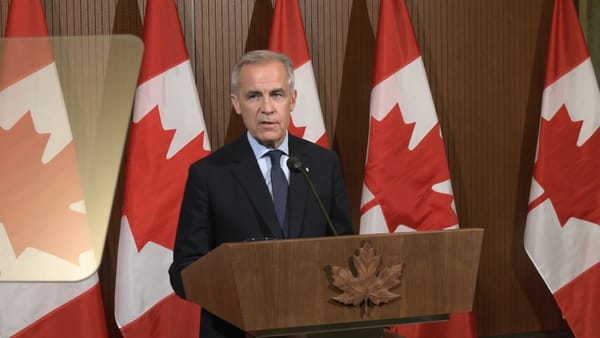The Silence After the Storm: What Canada Hasn’t Learned from the COVID Vaccine Debacle

In recent weeks, yet another wave of data has emerged—this time from peer-reviewed studies and mainstream scientific publications—that calls into question many of the official narratives surrounding the COVID-19 mRNA vaccines. In particular, the long-denied risks of myocarditis, especially in young men, are no longer speculative. They are now documented. Quantified. Admitted—though quietly, and only in some quarters.
In the United States, this reckoning has begun. Slowly, begrudgingly, but undeniably. Prominent figures who once mocked or vilified skeptics are walking back their positions. Medical institutions are beginning to acknowledge mistakes. Investigative journalism, once dormant on this topic, is reviving with post-pandemic retrospection.
But in Canada? Deafening silence.
Here, the narrative remains frozen in time—cemented sometime in early 2021, when dissent was still conflated with ignorance, and asking reasonable questions about vaccine safety was seen as a sign of moral failing. To suggest that healthy children might not need multiple doses of a new, barely-tested product was to mark oneself as anti-science, anti-social, or worse. And yet, the data now validates much of what was labeled dangerous conspiracy at the time.
Vindication Without Reflection
The new findings are stark: Long-term cardiac inflammation in vaccinated youth, persistence of spike protein well beyond the expected timeframe, and a significantly elevated risk of myocarditis with each successive dose, particularly from Moderna and Pfizer mRNA vaccines. These aren't theories. They're published results. The "safe and effective" mantra, while politically convenient, now looks medically irresponsible—at least in broad, unqualified terms.
It turns out the "anti-vaxxers" were, in many cases, just early readers.
But vindication is not the same as reflection. And this is where Canada’s failure becomes most troubling. As the U.S. begins the messy process of admitting error, Canada appears determined to never revisit the past. The media has moved on. Public health officials double down or remain evasive. And the general public—exhausted, misled, and eager to forget—no longer listens.
This lack of societal learning is not just frustrating. It’s dangerous.
The Real Cost of Suppressing Dissent
Let’s be blunt: the treatment of dissenters during the COVID era was shameful. Doctors were censored, professionals lost their licenses, ordinary citizens were deplatformed, and people were coerced into silence with the threat of economic ruin or social exclusion. Politicians and public health bureaucrats claimed a monopoly on truth, and the media obediently amplified their every word. Any deviation was dismissed as "misinformation," regardless of merit or evidence.
And now? No apologies. No corrections. No admission of the lives disrupted or the trust destroyed.
This cultural amnesia is not accidental. It is strategic. Because if Canadians were to genuinely confront the scale of the institutional failure—the censorship, the coercion, the unscientific mandates—it would shake their trust in the very pillars they’ve been taught to rely on. So instead, we pretend the data doesn’t exist. We pretend no one was silenced. We pretend that everything went more or less as it should have.
This isn’t ignorance. It’s denial.
A Warning for the Next Crisis
We cannot afford this selective memory. If we don’t acknowledge what went wrong—how dissent was punished, how questions were ridiculed, how bad science was enforced as dogma—then we will do it all again. The next emergency will bring the same calls to "follow the experts," the same media compliance, the same punishment for nonconformity.
And next time, the cost may be higher.
What we need now is not just a post-mortem on pandemic policy, but a cultural reckoning with our reflex to suppress debate in the name of consensus. Because consensus, when enforced, is not science. It’s ideology. And it’s the enemy of progress.
If you’re still reading—if you haven’t tuned out like so many Canadians have—then this is your call to action. Keep asking questions. Keep pushing back against the forced forgetting. Speak the truths others are too afraid to confront.
Because someone has to remember what really happened. And someone has to make sure it never happens again.
References
- American College of Cardiology: SARS-CoV-2 Vaccination and Myocarditis
- The Lancet: Post-vaccine Myocarditis in Adolescents
- Yale News: Immune Markers in Post-Vaccination Syndrome
- Business Today: Yale Study on Long-Term Vaccine Effects
- Axios: FDA's New Warnings on COVID Vaccines
- MDPI: Persistent Circulating Spike Protein Post-Vaccination





